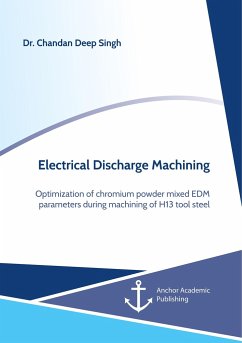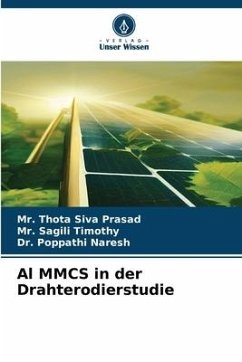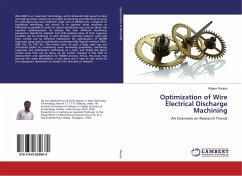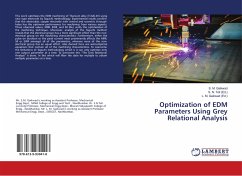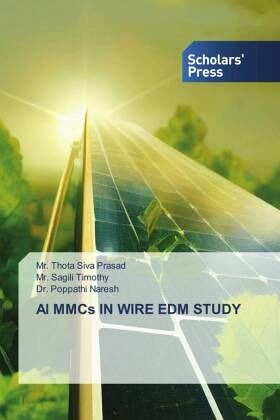
Al MMCs IN WIRE EDM STUDY
Versandkostenfrei!
Versandfertig in 6-10 Tagen
34,99 €
inkl. MwSt.

PAYBACK Punkte
17 °P sammeln!
Metal Matrix Composites (MMCs) have gained significant traction in various industrial applications, particularly in high-technology sectors, owing to their exceptional properties. These properties include a high strength-to-weight ratio, remarkable toughness, low coefficient of thermal expansion, excellent wear resistance, and the capacity to withstand elevated temperatures. As a result, MMCs have become sought-after materials in industries requiring advanced engineering solutions.Manufacturing MMCs involves a range of processes, including casting, forging, and extrusion, each tailored to spec...
Metal Matrix Composites (MMCs) have gained significant traction in various industrial applications, particularly in high-technology sectors, owing to their exceptional properties. These properties include a high strength-to-weight ratio, remarkable toughness, low coefficient of thermal expansion, excellent wear resistance, and the capacity to withstand elevated temperatures. As a result, MMCs have become sought-after materials in industries requiring advanced engineering solutions.Manufacturing MMCs involves a range of processes, including casting, forging, and extrusion, each tailored to specific applications and material combinations. While MMCs have proven themselves as versatile and high-performance materials, there exists a gap in our understanding of their machinability, particularly in cutting and finishing operations.Among the various machining techniques available, Wire Electrical Discharge Machining (WEDM) or WEDC stands out as an effective and economical method for shaping MMCs. This process involves the controlled erosion of materials using electrical discharges in a dielectric fluid, offering precision and versatility in machining complex shapes and profiles.




